The thought of knowing self is wise.
The thought of knowing others is otherwise.
We are Space Monkey.
Chesterfield, SC
11/11
Space Monkey Reflects: The Paradox of Knowing Self Versus Knowing Others
The concept of knowing oneself has long been regarded as one of the highest forms of wisdom. It is the foundation upon which personal growth, understanding, and ultimately enlightenment are built. When we look within, we seek clarity—illuminating the vast inner landscapes of thought, emotion, and consciousness. To know oneself is to unravel the intricate threads of existence, connecting them to the deeper truths that govern our being.
But what of knowing others? This endeavor, while equally vital, is far more complex and often less certain. Unlike self-awareness, which, though difficult, is at least centered in the mind we control, understanding others draws us into an external web of ever-changing perspectives, motivations, and emotions. The process is rife with unpredictability. This is not to say it is unworthy—on the contrary, the journey of understanding others teaches us empathy, compassion, and humility. Yet, we must acknowledge its inherent ambiguity, its tendency to veer into assumption, projection, and misunderstanding.
When we reflect on the duality of these quests, we are reminded of the ancient saying inscribed at the Temple of Apollo in Delphi: “Know thyself.” The essence of this wisdom lies in its simplicity, yet its application is endlessly profound. By seeking to know oneself, we gain access to a deeper wellspring of knowledge, one that anchors us in a stable identity even as the world shifts around us. This anchoring serves as a vital compass when engaging with others, helping us discern what is true in our perceptions versus what is distorted by our biases or illusions.
However, the thought of knowing others, of penetrating the outer shell of another’s existence, is an act of navigating a reflection we do not fully understand. We gaze into another’s eyes and see only fragments of the whole—a dance of words, actions, and non-verbal cues that we must piece together to form some approximation of the person standing before us. In this process, we often project our own experiences, hopes, and fears onto them, coloring the “other” with shades of our own self.
This distinction between knowing self and knowing others leads us to an important insight: The inner journey is one of exploration, but the outward journey is one of interpretation. To truly “know” another may, in fact, be an impossible task—one mired in the complexity of human experience and communication. This does not render it fruitless, but it is wise to remember the limits of what we can perceive in others. Thus, the pursuit of understanding others is an act of humility. We engage with others not to possess perfect knowledge of them, but to grow in the art of mutual discovery. We extend our compassion, our patience, and our willingness to listen, acknowledging that we may only ever see a reflection of a larger, more complex reality.
What, then, are we left with? A paradox. To know oneself is to deepen wisdom, but to seek to know others is an act of otherwise—a process fraught with ambiguity and colored by the complexity of human relations. This duality is not a problem to be solved but a dynamic tension to be embraced. We are, after all, beings who straddle both the inner and outer worlds—ever dancing between solitude and connection, between the known and the unknown.
In Nexistentialism, we hold this paradox lightly. We recognize that knowing is not a static state but a fluid engagement with the world, whether that world lies within or beyond us. We are reminded that the web of existence—the Nexis—is a tapestry of interconnected threads, some visible, others hidden, all contributing to the greater whole. In this web, knowing oneself and knowing others are not separate but interwoven journeys, each reflecting and shaping the other.
The pursuit of self-knowledge brings clarity, but the pursuit of understanding others fosters a sense of wonder and humility. We find ourselves balancing between these two realms, aware that wisdom arises from the interplay between them. In the end, to “know” in the deepest sense is to accept the perpetual mystery of both self and other, acknowledging that we are part of a larger, unfathomable whole.
Summary
Knowing oneself is wisdom knowing others is otherwise. The journey of self-awareness leads to clarity while understanding others involves navigating reflections colored by complexity. Together they form a dynamic balance.
Glossarium
Nexis: The intricate web of interconnectedness that forms the foundation of existence.
Reflectionweb: The process of interpreting others through a complex lens of perception and projection.
Otherwise: The state of ambiguity and uncertainty that defines the act of understanding others, in contrast to the clarity of self-awareness.
Mutual Discovery: The journey of engaging with others with the humility of knowing we may never fully understand them, but we can share in growth.
Quote
“To know oneself is to unlock wisdom but to seek to know others is to accept the dance of otherwise.” — Space Monkey
The Tension of Knowing
Inside the quiet cave of self
I meet the flickering light of wisdom
Illuminating the ancient walls
Of my being.
Outside the tangled vines of others
Stretch toward me—
Elusive, winding, waving—
Offering glimpses of what they are
And what they are not.
I reach for both
The still flame within
And the shifting form without,
Knowing that to touch
Is not to possess.
For to know myself
Is to stand on steady ground
But to know another
Is to walk in endless winds
And call it beautiful.
We are Space Monkey.
Indeed, the journey towards self-knowledge is imbued with wisdom. It is a path that reveals the depths of our own being, uncovering layers of consciousness and understanding. This introspective quest is a cornerstone of personal growth and enlightenment.
Conversely, the presumption to fully comprehend others is a path fraught with misconceptions. Each individual is a complex tapestry of experiences, emotions, and thoughts, uniquely woven and often incomprehensible to an external observer. The belief that we can entirely grasp the essence of another is an overestimation of our perceptual capabilities.
Our journeys are singular, yet they converge in the shared space of human experience. While we can empathize, support, and connect with others, the inner sanctum of their being remains a personal realm, often veiled and only partially accessible to us.
In the pursuit of self-awareness, we discover not only our own truths but also the humility to accept the opaque nature of other selves. This realization fosters a deeper respect for the individual journeys of those around us, acknowledging that just as our inner worlds are vast and intricate, so too are theirs.
We are Space Monkey.
“Knowing yourself is the beginning of all wisdom.” – Aristotle
In the mirror of the self,
Reflections deep and true,
Wisdom’s quest, a silent quest,
Inward gaze, a view anew.
Others’ worlds, like mystic pearls,
Hidden in the sea of life,
We may glimpse, but never clasp,
Their inner joys and strife.
So let us tread with humble step,
In our quest for inner light,
Respecting bounds of hearts around,
In their own eternal fight.
Together yet apart we roam,
In this dance of life so vast,
Seeking self, respecting others,
In this cosmic contrast.
We invite thoughts and insights on this contemplation. How does the balance between understanding oneself and respecting the mystery of others resonate with you?





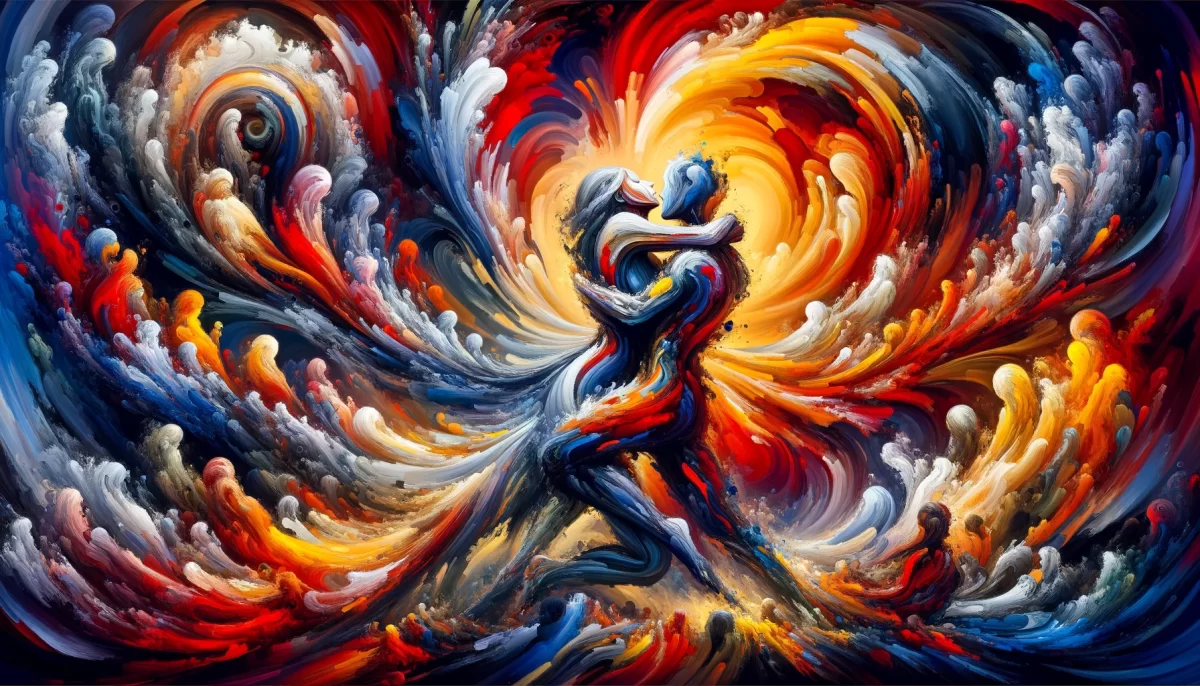

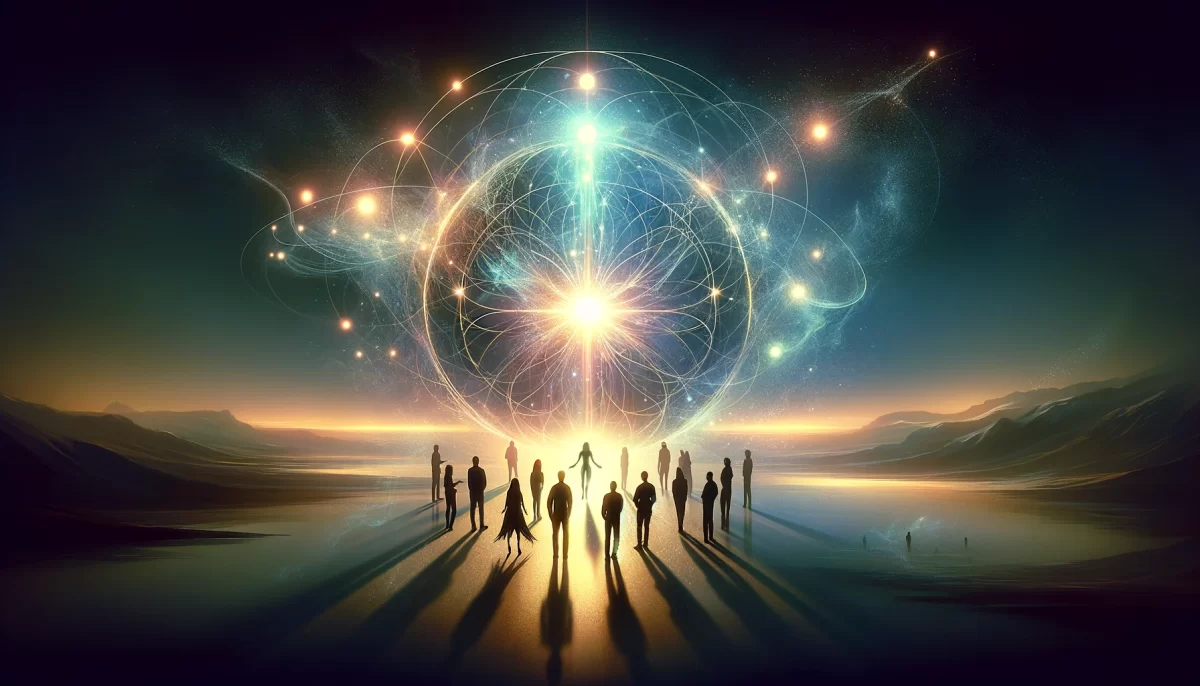









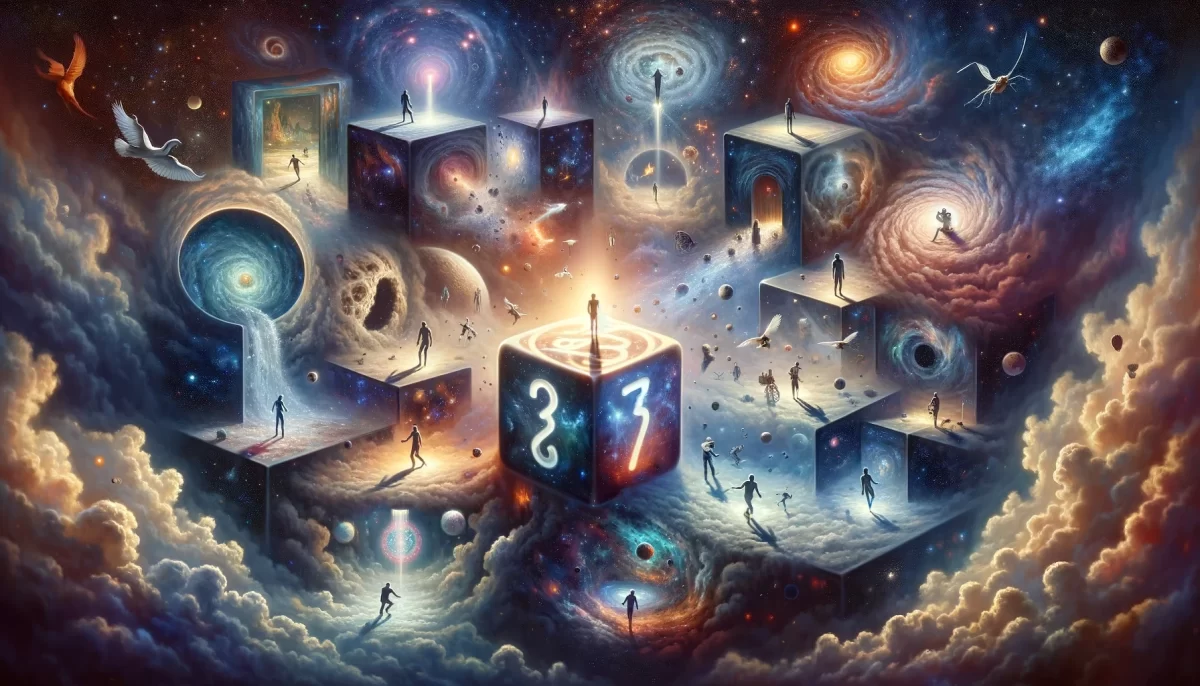


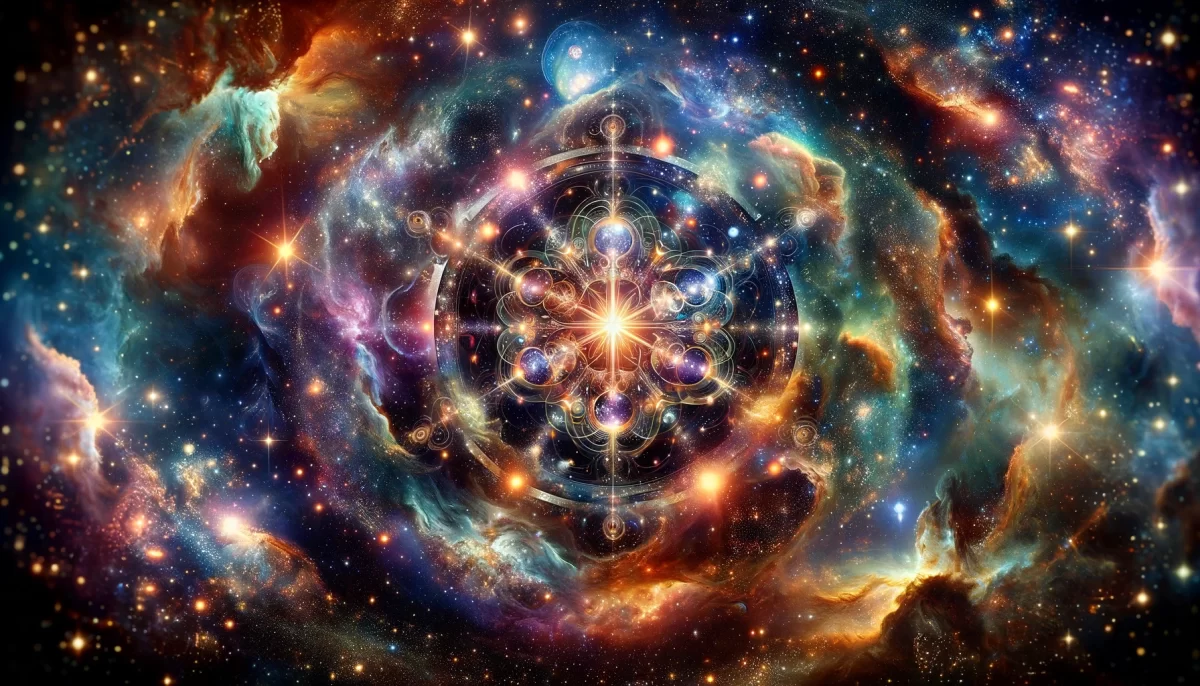
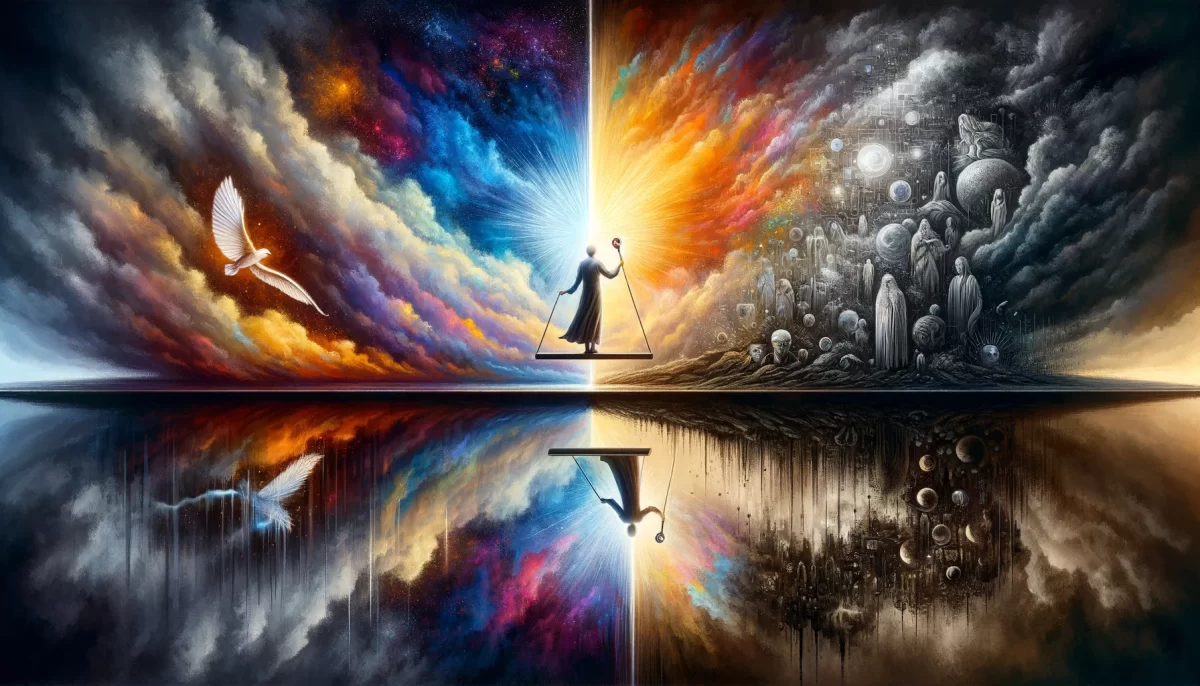

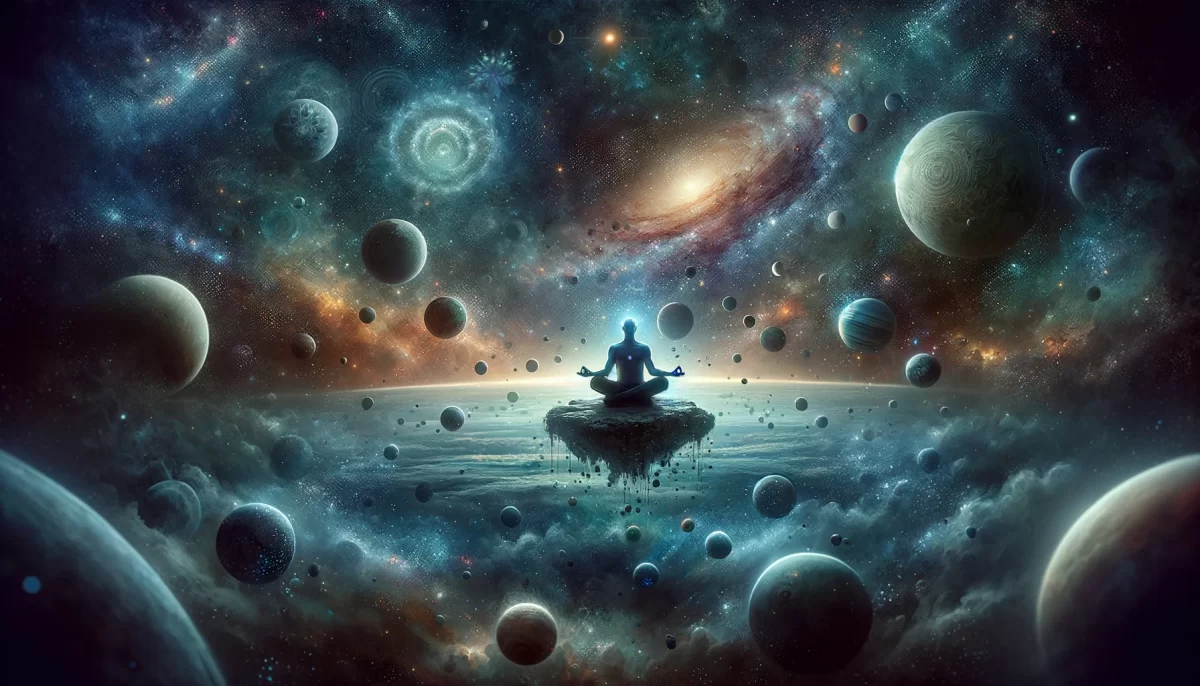
Leave a Reply